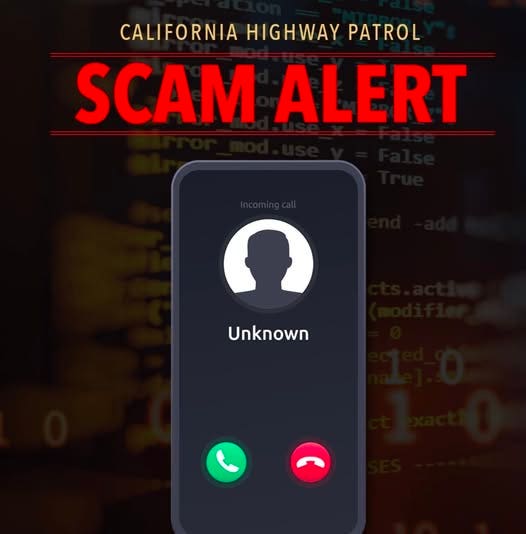The California Highway Patrol (CHP) has issued a public warning regarding a new scam targeting families in California. The scam involves individuals falsely posing as “representatives” of the Amber Alert system, contacting residents by phone and offering to visit their homes to collect personal information for child registration purposes. This purported registration process is entirely fabricated and does not exist within the legitimate Amber Alert system. The CHP emphasized that no legitimate Amber Alert representative would ever solicit personal information in this manner and urged residents to be vigilant against this deceptive practice. The fraudulent scheme exploits the public’s trust in the Amber Alert system, preying on parental concerns about child safety.
The Amber Alert system, established in 2003 and named after Amber Hagerman, a 9-year-old abduction and murder victim from Texas, serves as a vital nationwide mechanism for rapidly disseminating information about child abductions. It utilizes a network of law enforcement agencies, media outlets, and transportation departments to broadcast critical details about missing children, including descriptions, vehicle information, and suspect details, to the public. The system’s effectiveness relies on timely and accurate information sharing, aimed at increasing the chances of safely recovering abducted children. The fraudulent registration scheme undermines this vital system by creating distrust and confusion.
The CHP unequivocally stated that they are the sole agency authorized to activate Amber Alerts within California. This underscores the importance of verifying the authenticity of any communication purporting to be from the Amber Alert system. The CHP advised the public to exercise extreme caution when dealing with unsolicited calls and to never disclose personal information, especially regarding children, to unknown individuals over the phone. If contacted by someone claiming to be an Amber Alert representative requesting personal information, residents are urged to immediately report the incident to local law enforcement.
This scam highlights the vulnerability of individuals to sophisticated deception tactics exploiting widespread recognition and trust in established systems like the Amber Alert program. The scammers prey on parental anxieties concerning child safety, using the well-known Amber Alert name to lend credibility to their fraudulent activities. The tactic of offering to visit homes for registration adds a layer of seemingly official procedure, further enhancing the deception. The CHP’s proactive warning underscores the need for public awareness and education about such scams to prevent their success.
The CHP’s warning serves as a crucial reminder to be cautious of unsolicited phone calls, particularly those requesting personal information. Legitimate organizations rarely, if ever, solicit sensitive data like names, addresses, or family details over the phone. It is essential to independently verify the identity and authority of any individual or organization making such requests before divulging any information. Checking official websites, contacting known customer service numbers, and seeking verification from trusted sources are vital steps in protecting oneself from scams.
Beyond this specific scam, the incident underscores the broader importance of online and phone safety practices. Educating oneself and family members about common scam tactics, being wary of unsolicited communications, and verifying information from reputable sources are crucial steps in safeguarding personal information and preventing victimization. The CHP’s warning serves as a timely reminder to remain vigilant against fraudulent schemes and to report suspicious activity to the appropriate authorities. By working together and staying informed, communities can create a more secure environment and protect themselves from these predatory practices.











